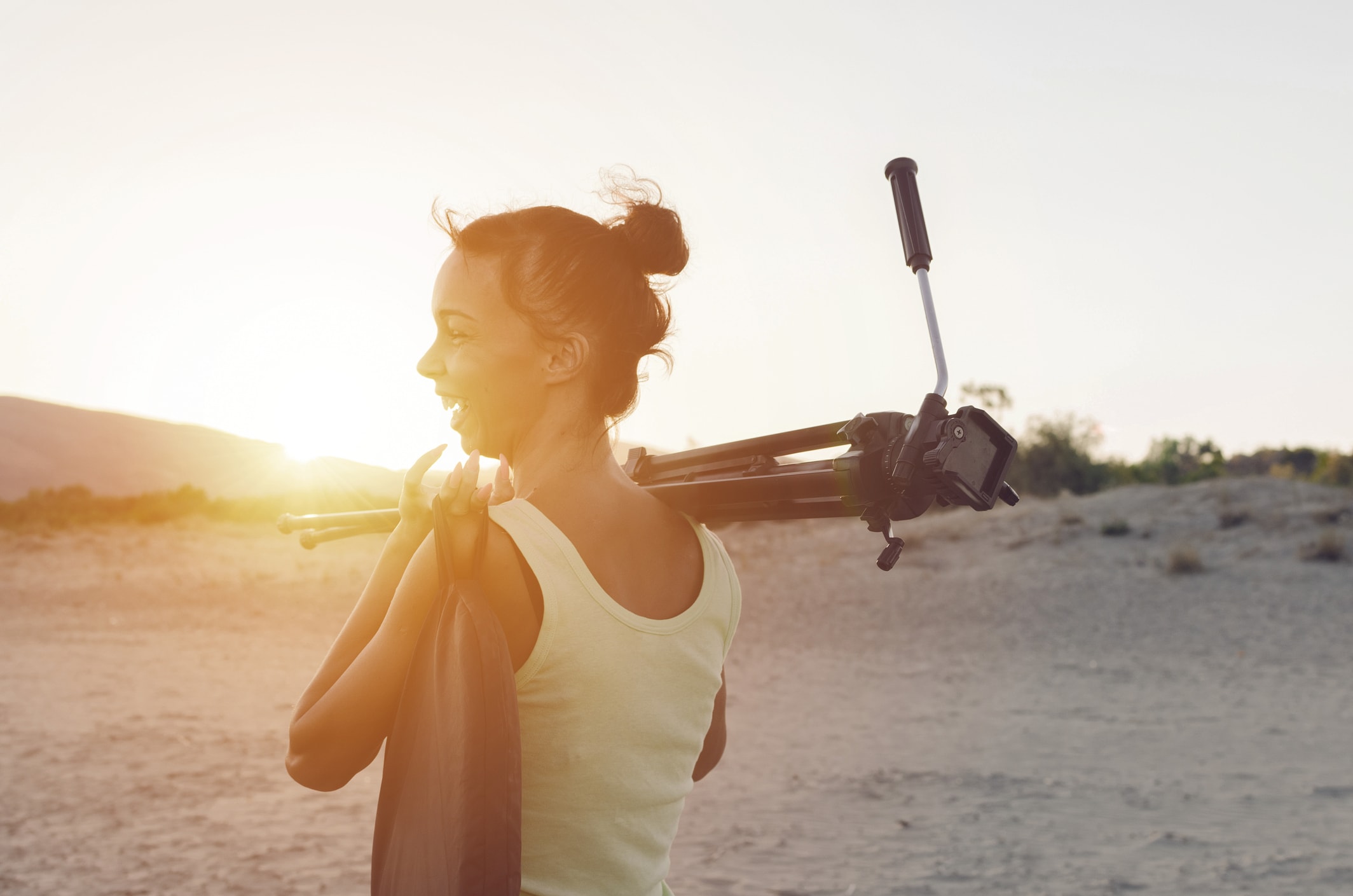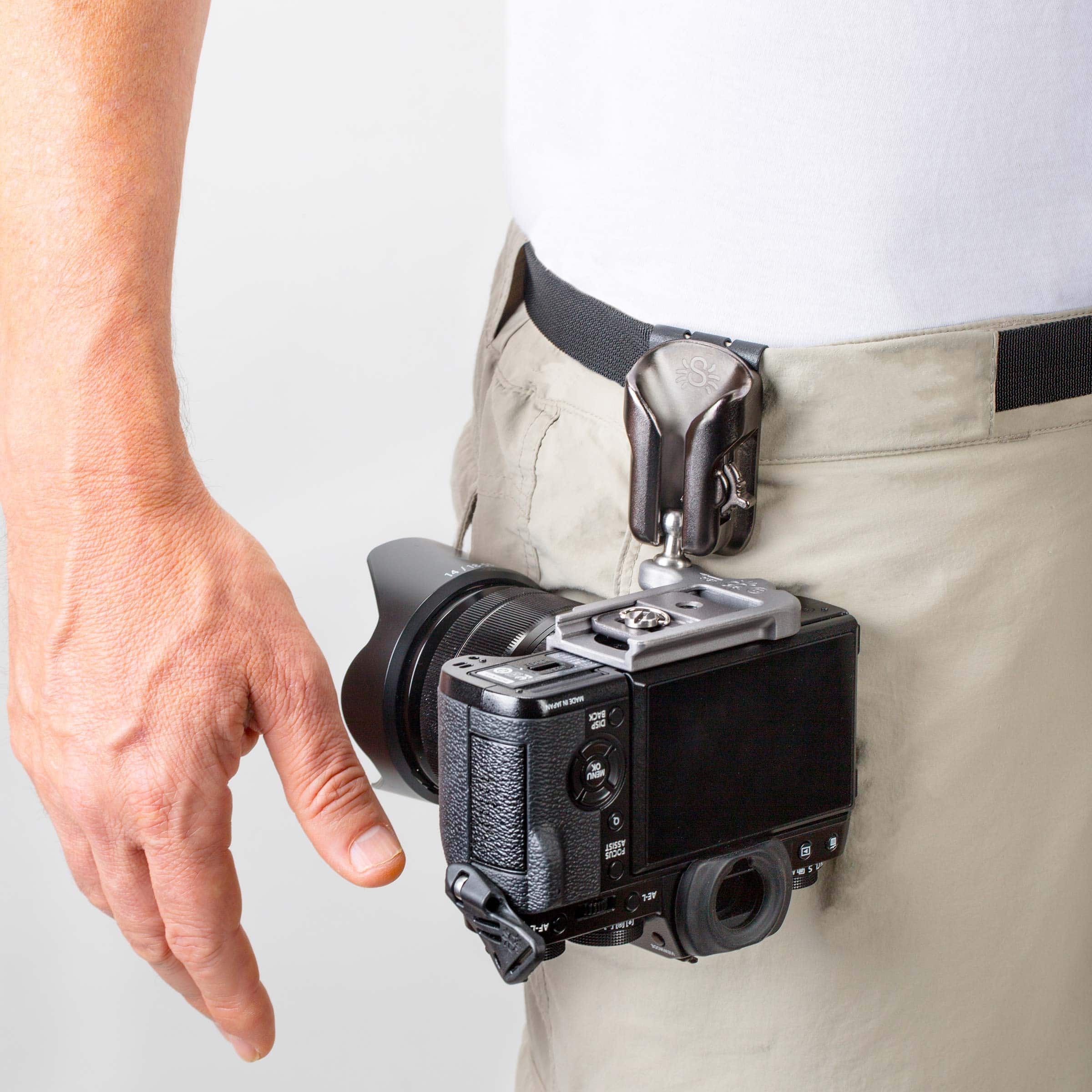Whether you enjoy taking portraits, photos of landscapes, macro photography, or something in between, something that you likely don't have is a ton of extra time.
That means that when you head out for a photo shoot that you need to maximize your available time so you can get the shots you want quickly and efficiently.


There is, however, a delicate balance between being efficient and hurrying too fast. After all, you don't want to rush through the process and end up with bad photos.
With that in mind, here are a few tips you can use to be more efficient with your time while still taking the time you need to get the best quality images.
Have a Plan
Have a Plan

This might seem like a no-brainer, but even professional photographers will sometimes grab their camera and start taking photos without having much of a plan.
Though there is certainly something to be said for spontaneity, more often than not, it will just get you off track and you'll end up coming home with a bunch of photos that aren't all that great.
Now, this doesn't mean that you need to plan every single detail of the entire photo shoot.
But what it does mean is that you need to make preparations that will help you use your time more wisely.

That might be something as simple as sitting down and developing a shot list.
It might also involve scouting locations, determining the best time of day for the best natural lighting, and being aware of certain obstacles (i.e., the hours of operation for the venue you'd like to use as a shoot location) that can throw your time off track.
Another example of planning ahead is that when you work with models for portrait photography, meet with them ahead of time.
This is obviously a necessity if you're a professional or an aspiring professional photographer because you'll need to have model release forms signed.
But even if you're just taking portraits of your friends or family, sit down for a few minutes and talk about the kinds of photos they want and what your shared vision is for the photos you take.
The more you're on the same page with your portrait model, the easier the process will be once you have them in front of your lens.
Learn More:
Less is More

I know that when I get into the heat of the moment, I tend to rapid-fire shots.
Now, this isn't necessarily a bad thing - especially if what you're photographing is on the move.
However, "spraying and praying" isn't really the approach that's going to get you high-quality photos.
Instead, taking a more measured approach will likely get you the shots you want.

With that in mind, try limiting yourself to a certain number of frames for each subject.
For example, if you're photographing a landscape, give yourself 10 shots to try and capture the scene as you want it captured.
And don't rapid-fire them, either. Check the lighting, the framing, the composition, and so forth with each shot to ensure you're giving your camera the best chance of getting the shot you want.
The chances are that you'll end up with better photos - and more of them - even though the total number of photos you take might be less.
Learn More:
- 5 Quick Landscape Photography Tips With Tons of Impact
- 8 Insanely Easy Things You Can Do Today to Immediately Improve Your Landscape Photography
Use Time-Saving Gear

It might not seem like a big deal, but the gear you use can actually cost you more time, or conversely, save you time.
Think about it...
If you're using a traditional camera shoulder strap, what are you constantly doing with it? You're adjusting it on your shoulder to keep it from falling off, worrying about it snagging on something as you hold the camera in your hand, and otherwise putting your attention on it instead of on the subject of the photo.
What's more, lugging around your camera all day on your shoulder isn't exactly a comfortable experience, and the last time I checked, if you're uncomfortable, you aren't exactly efficient with your time, either.
That's where the Spider Holster SpiderLight Holster comes in...

The SpiderLight is specifically designed for use with a mirrorless camera and enables you to shoot faster and more efficiently as well.
It places your camera right on your hip, that way you can carry it in ultimate comfort while also having it right there at your fingertips for easy access without fumbling around with a shoulder strap.
Even the way it assembles is efficient - just attach the SpiderLight to your belt, attach a Spider Plate to your camera, and voila - you're ready to shoot with quick-draw capabilities as seen below.

The SpiderLight is strong, durable, and easy to use as well. That gives you peace of mind that your camera is securely fastened to your hip but that you can retrieve your camera with ease when you need it, too.
It's even designed to be tripod compatible, and it doesn't interfere with access to the camera's battery door, either. In other words, it's an efficiency monster all the way around!
But if you're like me, you might not be so confident shooting without some sort of strap to prevent you from dropping your camera...
Again, Spider Holster has a quick and easy solution.

The Spider Holster SpiderLight Hand Strap is just what you need to give you the firm grip you want on your camera without having to deal with a long shoulder strap constantly getting in the way of your work.
Like the SpiderLight Holster, the hand strap is specifically designed for use with mirrorless cameras and lightweight DSLRs.
The strap is snug, yet comfortable and easy to get your hand in and out for maximum efficiency.
It doesn't get in your way, either, so your fingers are free to reach any button or dial on your camera if need be.
This strap is nice and sturdy, too, and puts your hand in the perfect shooting position for taking photos and videos.
In other words, if you truly want to unleash your efficiency, consider upgrading your gear with a SpiderLight Holster and a SpiderLight hand strap.
Combined with the other tips outlined above, you have a great recipe for improving your workflow no matter what type of subject you're photographing.
This article about photo shoot was first published on our website here https://www.photographytalk.com/beginner-photography-tips/how-to-maximize-the-efficiency-of-a-photo-shoot
This article about photo shoot was first published on our website here https://www.photographytalk.com/beginner-photography-tips/how-to-maximize-the-efficiency-of-a-photo-shoot